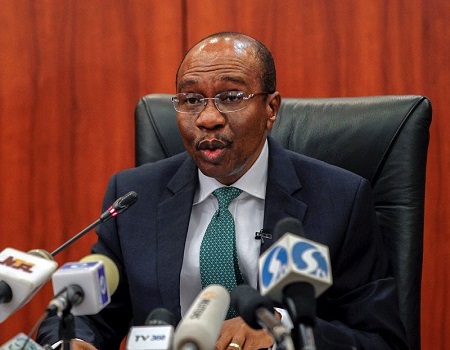As at December 2018, aggregate loans granted by Microfinance Banks (MFBs) was N482.896 billion.
Of this amount, loan sizes below N 1.4 million accounted for 72 per cent.
Also, small businesses have been more successful in securing credit from the microfinance institutions rather than conventional deposit money banks (DMBs).
The governor, Central Bank of Nigeria(CBN) Godwin Emeflele, made this known while delivering his Keynote address at the 27th Seminar for Finance correspondents and Business Editors, held at the Gombe international Hotel, Gombe State from April 24-27, 2019.
The theme of the seminar was “Repositioning Micro-Finance Banks for Real Sector Growth”.
Nevertheless, there are challenges of inadequate spread in the location of the MFBs in relation to their target beneficiaries, demand for immoveable collaterals for loans, high interest rate, and absence of a credit reporting system, Emefiele, represented by the CBN Deputy Governor, Mr Edward Adamu, said.
“We are committed and working assiduously to address these limitations,” he said.
He added that the bank was concerned about increasing access to financial services for the economically active poor to enhance job creation as well as poverty reduction.
Data from the licensed credit bureaus indicate that the operations of micro finance banks have helped to improve financial inclusion amongst smallholder peasant farmers. artisans and other small business operators.
Earlier, the Managing Director and Chief Executive Officer, Nigeria Incentive Based Risk Sharing for Agricultural Lending (NIRSAL), Aliyu Abdulhameed, disclosed that in few week’s time, over 200 farmers stand to benefit from the take off of the microfinance bank (MFB) lending in the country.
The NISRAL boss made this known at the annual seminar for financial journalists, while speaking on, “The NIRSAL Micro-Finance Bank and Real Sector Financing,” in Gombe State.
Abdulhameed said the aim is to further strengthen the nation’s financial inclusion, create jobs at the rural level, and fill the gaps of closed micro-finance banks to give loans to Small Micro Enterprises (SMEs) across in Nigeria.
He also said the move would help reduce tension and insecurity situation once the rural farmers and small scale businesses are empowered with micro-credits nationwide.
Represented by a Senior Manager of NIRSAL, Dr Segun Ogidan, Abdulhameed further noted that although about 902 microfinance banks are currently operating in the country, over 40 per cent of them are no longer viable.
“Our strategy is to ensure the coming back of failing micro-finance banks, remember, financial and non-financial service delivery is our mandate,” he said.






